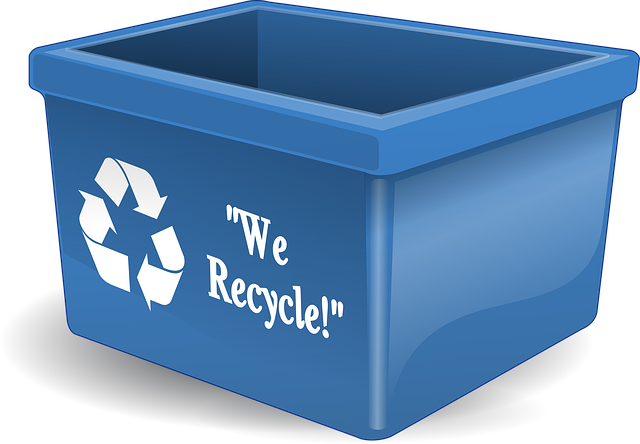E-waste management in Boston is a critical issue due to high technology adoption, posing risks from toxic material leaks. The city has responded by intensifying efforts in responsible e-waste management through convenient bulk electronics recycling programs for businesses and residents. Key initiatives include dedicated e-scrap solutions, drop-off locations, and specialized recycling centers that handle various types of tech equipment, recovering valuable materials like precious metals and plastics. By participating in these programs, Boston businesses can reduce their environmental impact, save costs, and contribute to a circular economy. Proper e-waste management ensures minimal harm, supports green tech initiatives, and positions Boston as a leader in both technological innovation and responsible recycling practices.
In today’s digital age, managing e-waste responsibly is a priority. Boston businesses now have a powerful tool to combat electronic waste with free e-recycling programs. This article explores the growing importance of understanding and mitigating the impact of e-waste in our city. We delve into the advantages of adopting bulk electronics recycling, its seamless process, and how to choose the ideal partner for your business. Discover the accepted items and best practices for effective e-waste management while contributing to a greener Boston.
- Understanding E-Waste and Its Impact in Boston
- The Benefits of Free Business E-Recycling Programs
- How Bulk Electronics Recycling Works
- Choosing the Right Partner for Your Boston Business
- Common Items Accepted in E-Waste Recycling
- Best Practices for Effective E-Waste Management
Understanding E-Waste and Its Impact in Boston

E-waste, or electronic waste, is a growing concern in urban areas like Boston, where technology use is prevalent. It includes a wide range of items from outdated computers and mobile phones to small appliances and lighting fixtures that contain toxic materials. Improper disposal of e-waste can lead to significant environmental and health impacts due to the release of harmful substances such as lead, mercury, and cadmium into soil and water sources. In Boston, recognizing this issue has led to increased efforts in promoting responsible e-waste management through bulk electronics recycling programs.
The city offers several convenient options for residents and businesses to recycle consumer electronics locally, including dedicated e-scrap recycling solutions and drop-off locations scattered throughout the metropolis. These initiatives not only help reduce the negative effects of e-waste but also contribute to a more sustainable future by allowing valuable materials to be recovered and reused, thereby minimizing the demand for new resources and reducing waste in landfills.
The Benefits of Free Business E-Recycling Programs

Free business e-waste recycling programs offer a multitude of benefits to companies looking to dispose of their bulk electronics responsibly. By participating in these initiatives, businesses can significantly reduce their environmental impact and contribute to a sustainable future. One of the primary advantages is cost savings; free recycling eliminates the financial burden associated with traditional disposal methods, which often involve high fees for hazardous waste management.
Additionally, these programs facilitate efficient navigation through the complex process of electronics recycling. Specialized recycling centers in Boston are equipped to handle various types of outdated tech equipment, ensuring that materials like precious metals, plastics, and glass are recovered and repurposed. This not only minimizes the environmental damage caused by improper disposal but also allows businesses to play a crucial role in the circular economy by contributing to the Boston tech trash collection effort.
How Bulk Electronics Recycling Works

In the heart of Boston’s bustling tech scene lies a silent yet powerful force driving sustainability: bulk electronics recycling. This process is designed to handle large-scale electronic waste, or e-waste, generated by businesses across the region. It starts with the collection of outdated electronics, from computers and servers to phones and tablets. These items are then transported to massive electronics recycling operations where the real magic happens.
Specialized facilities employ advanced techniques to disassemble and process these devices safely. Precious metals, rare earth elements, and other valuable materials are extracted through a meticulous sorting and refining process. This not only reduces the environmental impact of e-waste but also contributes to green tech waste management by providing sustainable resources for manufacturing new products. It’s about transforming what was once considered tech trash into eco-friendly solutions, ensuring Boston remains at the forefront of both technology innovation and responsible green electronic waste management.
Choosing the Right Partner for Your Boston Business

When it comes to selecting a partner for your Boston business’s bulk electronics recycling needs, diligence is key. Look for a company that specializes in both eco-conscious electronics recycling and Boston digital waste management. Ensure they offer comprehensive services beyond just computer and phone recycling programs. A reputable firm should have the infrastructure and expertise to handle various types of electronic waste responsibly, ensuring compliance with local regulations.
Choosing a partner who prioritizes sustainability demonstrates your business’s commitment to environmental stewardship. Research their methods, certifications, and track record for responsible disposal or repurposing of e-waste. This decision not only contributes to a cleaner Boston but also aligns with the growing trend of sustainable business practices among eco-conscious folks.
Common Items Accepted in E-Waste Recycling

When it comes to common items accepted in e-waste recycling, a wide range of electronic devices from both businesses and households can be part of the process. In Boston, the bulk electronics recycling services are designed to accommodate various materials, including computers, laptops, tablets, smartphones, printers, copiers, keyboards, mice, and even small home appliances like toasters and coffee makers that operate on electricity. These devices often contain valuable metals, plastics, and other materials that can be recycled or repurposed, reducing electronic waste in e-waste drop-off locations Boston.
The Boston e-waste collection initiative focuses on making sure these items don’t end up in landfills, where they can release toxic substances into the environment. Instead, large-scale e-waste recycling facilities ensure that materials are processed responsibly, with a commitment to environmental safety and sustainability. By participating in these recycling programs, businesses and residents contribute to a greener future by keeping electronic waste out of the wrong hands and ensuring proper disposal or repurposing.
Best Practices for Effective E-Waste Management

In the realm of sustainable practices, effective e-waste management is paramount, especially in urban centers like Boston where technology advances rapidly. The best practices for managing electronic waste, or e-waste, involve a combination of public education and robust recycling infrastructure. Encouraging residents to participate in e-cycle Boston events and e-cycle programs in Massachusetts is key; these initiatives not only educate but also provide accessible avenues for disposing of old electronics responsibly. By fostering a culture of responsible disposal, the city can ensure that hazardous materials from devices like computers, phones, and TVs are handled with care, preventing environmental contamination.
On a larger scale, bulk electronics recycling Boston facilities play a pivotal role in processing significant amounts of e-waste generated by businesses and institutions. These specialized centers employ advanced technologies to disassemble and recycle various electronic components, extracting valuable materials for reuse while minimizing environmental impact. Such large-scale e-waste recycling efforts are crucial in keeping up with the ever-growing demand for technology, ensuring that waste is transformed into resources rather than pollutants.
Boston businesses now have a powerful tool in their sustainability arsenal with free e-waste recycling programs. By embracing bulk electronics recycling, companies can significantly reduce their environmental footprint and contribute to a greener future. This initiative not only minimizes the harmful impact of e-waste but also fosters a responsible and efficient management system. With the right partner, businesses can ensure proper disposal of electronic items, knowledgeably navigate the recycling process, and play a vital role in Boston’s eco-conscious transformation.














